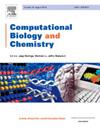间充质干细胞分泌组对乳腺癌基因表达的影响:一种识别差异表达基因、功能网络和潜在治疗靶点的生物信息学方法。
IF 2.6
4区 生物学
Q2 BIOLOGY
引用次数: 0
摘要
间充质干细胞(MSC)分泌组在塑造肿瘤微环境、影响癌症进展和潜在治疗结果方面起着关键作用。在这项研究中,我们利用公开的数据集GSE196312,研究了MSC分泌组在乳腺癌细胞基因表达中的作用。我们的研究结果揭示了差异表达的基因,包括磷脂酰肌醇-3,4,5-三磷酸依赖性Rac交换因子1 (PREX1)、C-C基序趋化因子配体28 (CCL28)的上调,以及I型胶原α 1链(COL1A1)、I型胶原α 3链(COL1A3)、III型胶原α 1链(COL3A1)的下调,这些基因有助于细胞外基质(ECM)减弱和促进细胞迁移。功能富集分析也强调了ECM重塑途径的抑制,以及钙离子结合和Rap1信号通路的激活。我们提出Ca2 +通过其下游通路如基质金属蛋白酶(MMP)、PI3K/Akt和MEK/ERK信号通路激活ras相关蛋白1 (Rap1)有助于促进细胞迁移。然而,通过减少癌细胞中纤维连接蛋白1 (FN1)和分泌蛋白酸和富含半胱氨酸(SPARC)基因表达的共培养模型强调了MSC分泌组的治疗方面。这些发现强调了间充质干细胞分泌组对癌细胞行为的双刃剑性质,而我们的主要结果强调了通过ECM重塑的癌症进展,不应强调治疗方面。本文章由计算机程序翻译,如有差异,请以英文原文为准。
Investigation of mesenchymal stem cell secretome on breast cancer gene expression: A bioinformatic approach to identify differentially expressed genes, functional networks, and potential therapeutic targets
The mesenchymal stem cell (MSC) secretome plays a pivotal role in shaping the tumor microenvironment, influencing both cancer progression and potential therapeutic outcomes. In this research, by using publicly available dataset GSE196312, we investigated the role of MSC secretome on breast cancer cell gene expression. Our results raveled differentially expressed genes, including the upregulation of Phosphatidylinositol-3,4,5-Trisphosphate Dependent Rac Exchange Factor 1 (PREX1), C-C Motif Chemokine Ligand 28 (CCL28), and downregulation of Collagen Type I Alpha 1 Chain (COL1A1), Collagen Type I Alpha 3 Chain (COL1A3), Collagen Type III Alpha 1 Chain (COL3A1), which contributing to extra cellular matrix (ECM) weakening and promoting cell migration. Functional enrichment analyses also highlighted suppression of ECM remodeling pathways, and activation of calcium ion binding and Rap1 signaling pathway. We proposed that Ca2 + medicated activation of Ras-related protein 1 (Rap1) through its its downstream pathways such as Matrix Metalloprotease (MMP), PI3K/Akt, and MEK/ERK signaling pathway contribute to promotion of cell migration. However, the co-culture model by reducing Fibronectin 1 (FN1) and Secreted Protein Acidic and Cysteine Rich (SPARC) gene expression in cancer cells, emphasized on therapeutical aspects of MSC secretome. These findings emphasize on the dual edge sword nature of MSC secretome on cancer cell behaviors, while our major results emphasize on the cancer progression through ECM remodeling, the therapeutic aspects should not be underscored.
求助全文
通过发布文献求助,成功后即可免费获取论文全文。
去求助
来源期刊

Computational Biology and Chemistry
生物-计算机:跨学科应用
CiteScore
6.10
自引率
3.20%
发文量
142
审稿时长
24 days
期刊介绍:
Computational Biology and Chemistry publishes original research papers and review articles in all areas of computational life sciences. High quality research contributions with a major computational component in the areas of nucleic acid and protein sequence research, molecular evolution, molecular genetics (functional genomics and proteomics), theory and practice of either biology-specific or chemical-biology-specific modeling, and structural biology of nucleic acids and proteins are particularly welcome. Exceptionally high quality research work in bioinformatics, systems biology, ecology, computational pharmacology, metabolism, biomedical engineering, epidemiology, and statistical genetics will also be considered.
Given their inherent uncertainty, protein modeling and molecular docking studies should be thoroughly validated. In the absence of experimental results for validation, the use of molecular dynamics simulations along with detailed free energy calculations, for example, should be used as complementary techniques to support the major conclusions. Submissions of premature modeling exercises without additional biological insights will not be considered.
Review articles will generally be commissioned by the editors and should not be submitted to the journal without explicit invitation. However prospective authors are welcome to send a brief (one to three pages) synopsis, which will be evaluated by the editors.
 求助内容:
求助内容: 应助结果提醒方式:
应助结果提醒方式:


